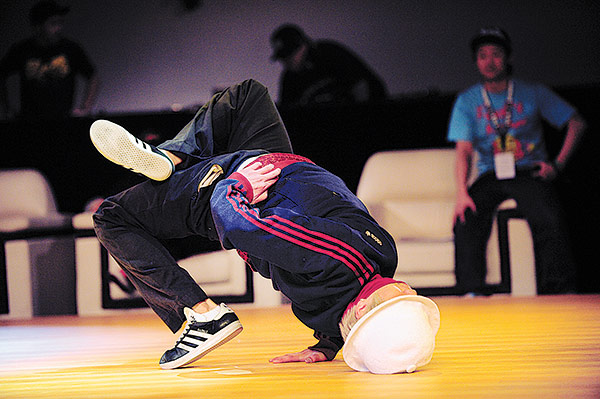

For Pei, over the years, breaking has turned from a passion into a part of life, something he's been doing every day. He thinks his 3-year-old daughter, who constantly sees him practice, has been exhibiting extraordinary rhythmic body movements, although he hasn't taught her any moves yet.
And, as time goes by, he cherishes the 26 members of the crew, who went through troubled times and rose from obscurity, even more. They keep close ties, even though many of them no longer live or work together.
Pei and his fellow breakers had to forge a new path and explore the genre mainly by themselves, inevitably facing challenges and detours along the way. However, he expects the next generation to have a much easier journey. He hopes they will find creative ways of integrating Chinese culture into freestyle dance in the future.
Around 15 years ago, Dragonstyle pioneered the integration of kung fu and Peking Opera into its choreography, but today Pei would not be satisfied with that, as he describes the combination to still be superficial.
Creativity has always been priority for him as a coach and a judge. He sees it as especially fresh and compelling if a breaker comes up with an unexpected freestyle move to make up for a mistake, but he is starting to notice a trend of homogenization in competitions, both at home and abroad.
"I do hope breaking teachers pay more attention to developing young people's imagination and teaching them not to be afraid of making mistakes and, most importantly, to be happy with breaking," Pei says.